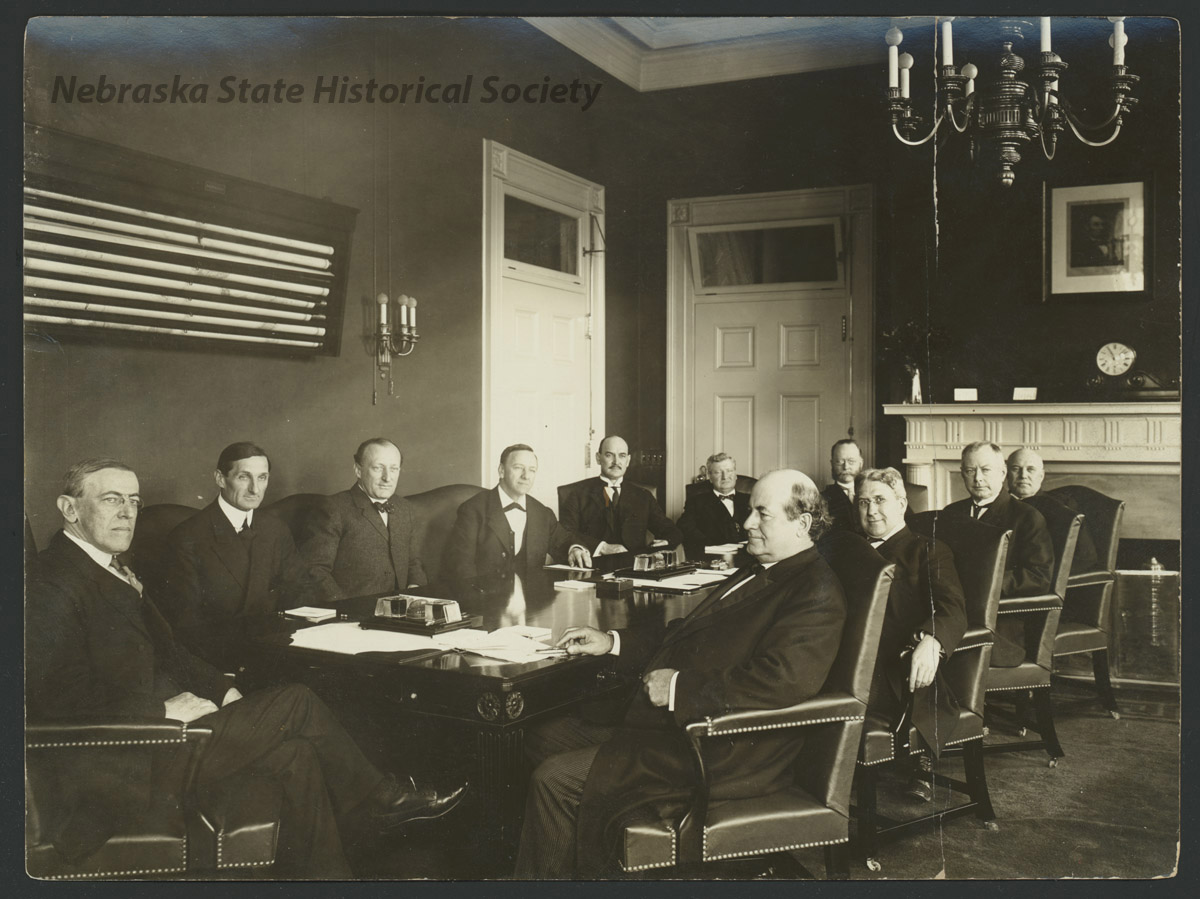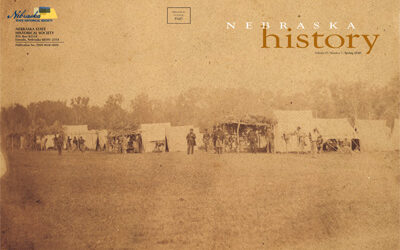
President Woodrow Wilson and hist cabinet, 1913. Bryan is seated front right. NSHS RG3198.PH49-5
May 7 marks the one-hundredth anniversary of the sinking of the British passenger liner RMS Lusitania by a German submarine with the loss of nearly 1,200 lives, 128 of them Americans. Differing views by President Woodrow Wilson and his secretary of state, William Jennings Bryan of Nebraska, on how the United States should respond soon led to Bryan’s resignation.
When World War I broke out in August 1914, Bryan was convinced that the United States must avoid being drawn into the war at all costs. He advocated a policy of strict neutrality, which proved difficult to maintain in the face of general American sympathy for Great Britain and France in their war with Germany. What’s more, U.S. manufacturers and farmers saw the export of materials and agricultural products to the belligerents as a solution to an ongoing economic recession. A vast increase in trade between the U.S. and the Western Allies, but not with Germany, inevitably sparked German resentment.
Early in 1915, Germany proclaimed a “war zone” around the British Isles in which U-boats would attack ships carrying goods to England. Neutral nations, such as the United States, were warned to avoid the area. To this Wilson lodged a protest on February 10, noting that Germany would be held accountable for any harm to American ships and American citizens. Nevertheless, through March and April 1915 some American vessels were attacked and some Americans were killed, though the Wilson administration took no immediate action.
It was the sinking of the Lusitania with such great loss of life that finally forced President Wilson’s hand. On May 13, he demanded that the Germans abandon activities that endangered American lives. Bryan argued that Americans traveling in the war zone were guilty of “contributory negligence” and that the U.S. claim of neutrality could be sustained only by giving up the right of trade and travel in the zone. Any demand for German reparations should be postponed until the war was over. Wilson did not agree and was willing to risk war to protect American rights.
Convinced that the president was leading the nation into war, Bryan resigned as secretary of state on June 8, 1915. Scholars who have studied Bryan’s time as U.S. Secretary of State have concluded that he was right to argue that the U.S. could not remain neutral while continuing to trade with the Western Allies and allowing its citizens to travel in the war zone. As a statesman, however, Bryan was hampered by his belief that a moral opposition to war could keep the U.S. on the sidelines when the nation had already undercut its claimed neutrality by its exports to Great Britain and France and its condemnation of Germany’s response.
Although it would be nearly two years before the United States declared war against Germany on April 6, 1917, the stage had been set by the May 7, 1915, sinking of the Lusitania. For an analysis of Bryan’s time in the Wilson administration, see Kendrick A. Clements, “Secretary of State William Jennings Bryan,” Nebraska History 77 (Fall/Winter 1996). – James E. Potter, Senior Research Historian, NSHS



